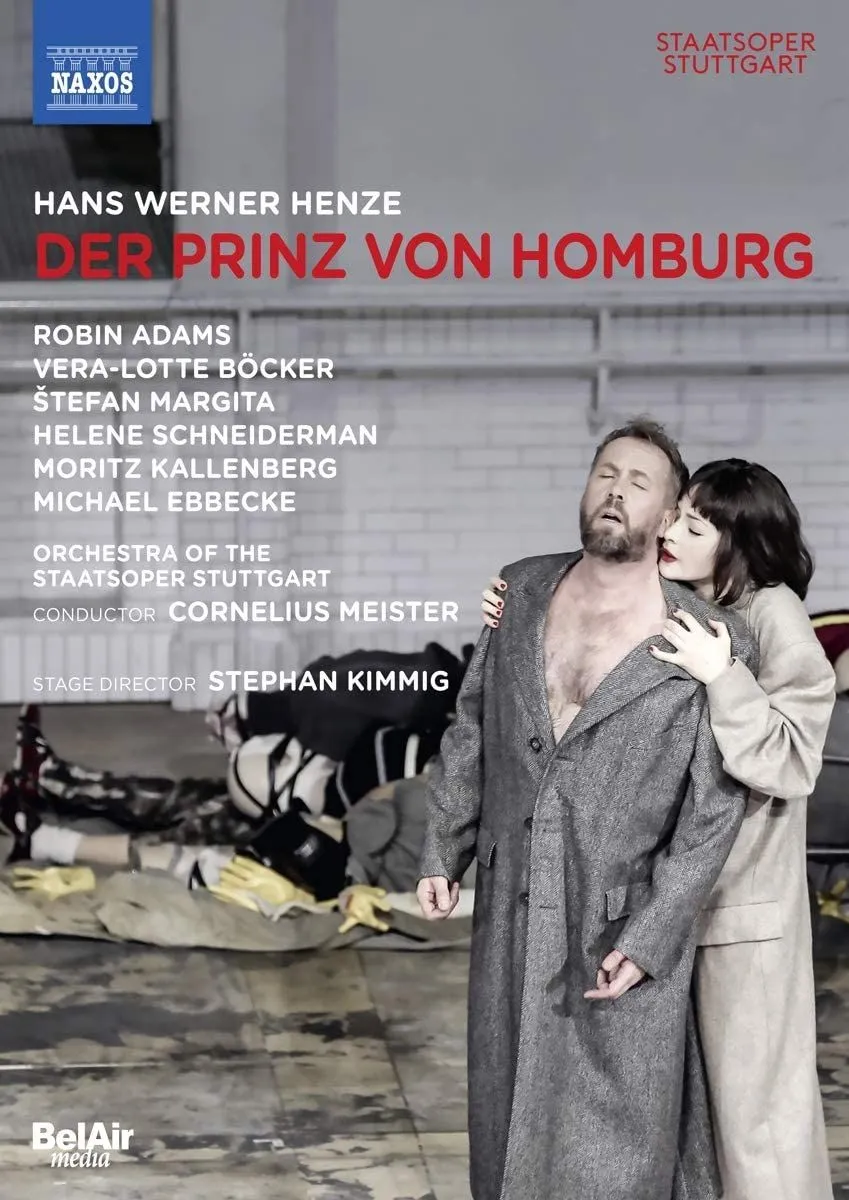
Henze Der Prinz von Homberg Vera-Lotte Böcker (soprano), Helene Schneiderman (mezzo-soprano), et al; Orchestra of the Staatsoper Stuttgart/Cornelius Meister; dir. Stephan Kimmig (Stuttgart, 2019) Naxos 2.110668 107:57 mins (DVD)
In 1953, Henze moved to Italy to escape the intolerance he experienced within German society and the postwar new music establishment. Five years later, his opera Der Prinz von Homburg pitted artist dreamer against laws and social conventions in what would prove a lifelong concern with issues of personal and collective freedom.
Stephan Kimmig’s intriguing modern-day production for Staatsoper Stuttgart sets the drama in an abstract frame that’s at once transparent and opaque: while instinct and reason vie for supremacy, Homburg’s inner and outer struggles become a journey through dystopian militarism to a place of mercy and understanding.
On the one hand real and on the other a kind of absurdist dream, the resulting tensions capture the contradictions wrought by Henze and librettist Ingeborg Bachmann (compressing Kleist’s 1810 drama), without sacrificing the characters’ emotional credibility.
Robin Adams is outstanding as Homburg in an excellent cast. His relationship with the Elector he has inadvertently disobeyed (Štefan Margita) is complex – and rightly full of love, even beyond that with his beloved Natalie (Vera-Lotte Boecker) and friend Hohenzollern (Moritz Kallenberg).
Conductor Cornelius Meister makes cogent the luminous score, revised in 1991 with a reduced instrumentation. It’s rich with inventive textures that allow Henze’s lush, free tonality and angular, martial serialism to become not so much dialectical opposites as a necessary fusion. Dedicated to Stravinsky (and, coincidentally, influenced by Verdi), the Russian’s Symphony in Three Movements haunts the piece with a driving energy that pays homage to a shared anti-war sentiment.
Steph Power